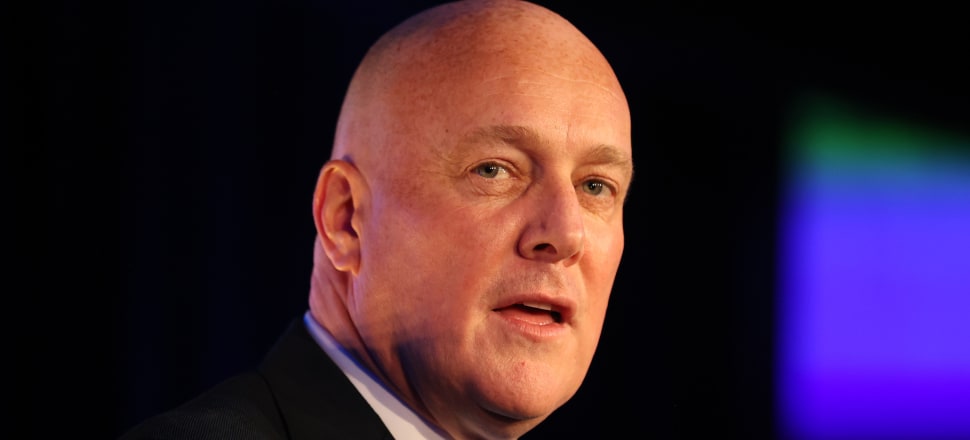
The election campaign's been torrid and divisive. How do you put a country back together after we've spent the past few months yelling at each other?
The election is over, we've had a crucial win at the Rugby World Cup, it's springtime, and the cost of a caulflower has dropped to $3.99. Surely all sound reasons to be in a good mood and get over our bitter divisions.
Yes and no, says Peter Dunne, political pundit, former government minister and United Future party leader.
A World Cup win by the All Blacks will be an important rallying point but a short-term factor. But prime minister-in-waiting Christopher Luxon has a "glorious opportunity to put the past behind him" and unite the country.
"He set out on Saturday night to talk about a positive tone, he's really got to live that now and be seen to be a healer and a unifier."
Dunne recalls the social scarring from the Springbok Tour controversy that took the country years to recover from.
"Contrast that to today and the deep scars we've got, I think principally as a result of the pandemic and the divisions of that, calls about MIQ and about vaccines and about lockdowns," he says – he points to Rachel Hunter who famously said in her shampoo ad, "it won't happen overnight, but it will happen".
Dunne answers questions on The Detail today that are still puzzling people about the election, from the meaning of an overhang to the chances of a National/Labour coalition in the future.
He explains why Te Pāti Māori's success on the night could see the number of seats in Parliament extend to 124 and what it means for coalition talks between National, Act and New Zealand First.
Those talks will be the first test of Luxon as leader, says Dunne. It is essential to get the bones of an agreement sorted out with Act and then put the arrangement to New Zealand First, avoiding "interminable" negotiations with Winston Peters.
"I think the risk if you don't do that, and go along and say 'Let's all sit around the table and work out what to do', is that Peters takes over and runs the show as he has in previous negotiations and it gets drawn out.
"This is a real test of Luxon's leadership. He says he's good at mergers and acquisitions. He's really got to put his stamp on this government right from the outset."
Dunne sets out the steps to forming the next government and the pressure the parties are under to reach a deal in the next couple of weeks.
"On the other hand, they'll be wary of moving too quickly," he says – and that's based on past history.
He also explains why it takes so long to count special votes, and the hangovers from a non-digital age that still exist, such as the blackout on election advertising and media coverage from midnight on election day.
"I think that is an anomaly and there needs to be some reconsideration of that," he says.
Standout moments on election night for Dunne include the extraordinary success of Te Pāti Māori, and the Greens capturing three electorate seats, but also the impact of Labour's losses on the makeup of Parliament.
The overwhelming majority of Labour MPs defeated were women, but some of those losses will be balanced off by the "fairly strong" intake of new National Party MPs.
The clean out in Labour has also affected future leadership possibilities for the party, particularly if Chris Hipkins decides to stand down. "It's pretty hard to see who his obvious replacement is," he says.
But Dunne does have some hope for future social cohesion.
"The election result provides a huge opportunity which I'd hoped Jacinda Ardern may have taken but didn't, to really start to focus on what it means to be a New Zealander today in all our guises, with all our different cultural and other appreciations. We've got this strong opportunity to forge this really great multi-ethnic, multi-cultural nation of the world."
Check out how to listen to and follow The Detail here.
You can also stay up-to-date by liking us on Facebook or following us on Twitter.








